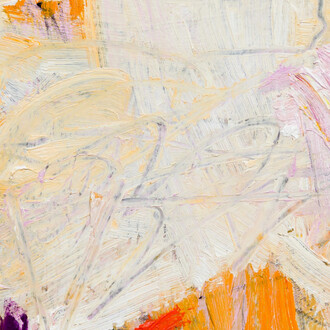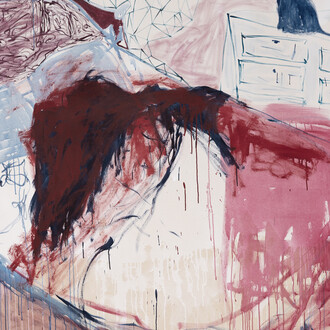“In most of my photographs we witness the somewhat mundane ways in which we interact with the landscape – walking the dog, diving into a river, cycling along a tow-path – interacting with the landscape perhaps with no sense of the historic significance of the place we’re passing through or using. I’m also looking for subliminal signals in the landscape, capturing a sense of tension just under the surface of the photograph – the police car in Kielder Water, the jockeying for position to take a picture at Flatford Mill, the managed pathways at Stonehenge, the gas delivery van ‘spoiling’ the view of Sheringham Park.” – Simon Roberts
Flowers Gallery is pleased to present a new series of photographs by Simon Roberts. Building on his previous major bodies of work: We English (2009); The Election Project (2010); and Pierdom (2013); Roberts has turned his attention to heritage sites across England, exploring themes of identity, memory and nationhood through our everyday interactions with the landscape.
In 2014, Roberts travelled around the country to photograph popular scenic destinations, heritage sites and historic properties owned on behalf of the nation. Capturing the activities and interactions of visitors at each location, his photographs reflect upon how the countryside has been modelled and managed for the purposes of leisure, and in turn, how our sense of belonging is determined by a connection to place.
The elevated perspective of his large-format tableaux sets the viewer at a critical distance from the scene. Taking his photographs from a high vantage point, often from the roof of his motorhome, Roberts attempts to map the patterns of contemporary life, which he describes as “governed by forces that are not possible to see from a position within the crowd”. Presenting an alternative viewpoint to the pastoral idyll, Roberts highlights our shared and sometimes imperfect experience of the landscape, inviting wider questions about private ownership and public usage of land.
“Roberts’ work explores senses of belonging in landscapes. Since land invariably belongs to somebody, landscape is closely linked to notions of ownership, by individuals or institutions. Landscapes are also linked, beyond legal ownership, to larger worlds of nature and nation, beauty and history, as the term belonging extends to more shared senses of attachment, citizenship and entitlement.” - Stephen Daniels. Excerpt from the upcoming publication: Landscapes of the National Trust (Pavilion Books, October 2015).
















